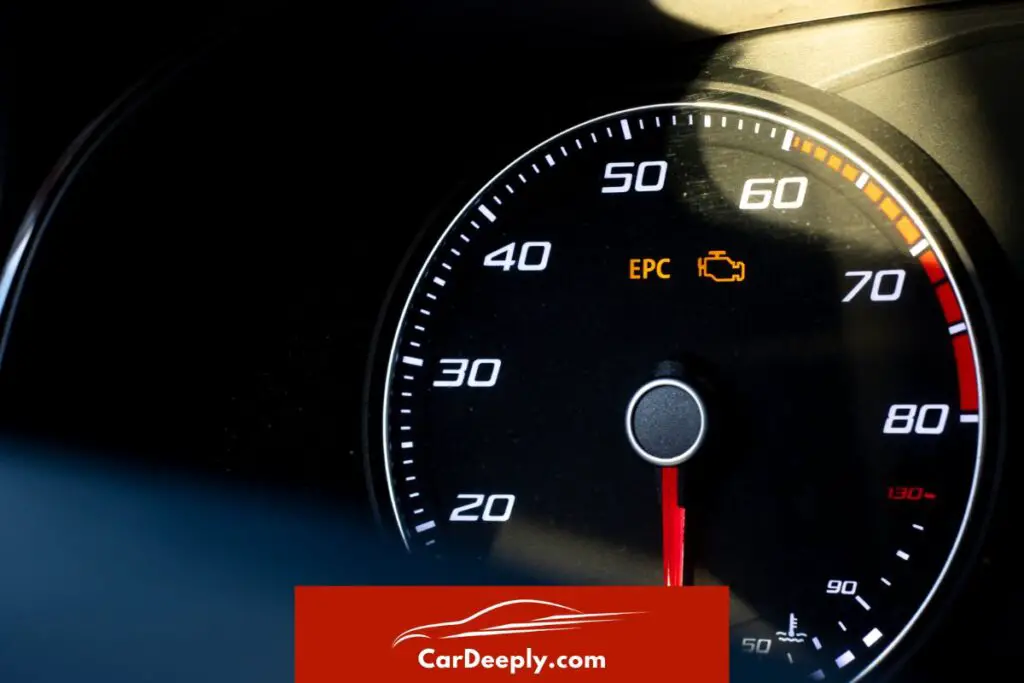Ever been cruising down the road when suddenly, your check engine light flickers on and off?
It’s enough to spike your heart rate. But don’t panic just yet! This guide is your lifesaver, with expert advice to prevent costly mistakes.
You’ll discover:
- Common causes why your check engine light goes on and off
- Easy and quick solutions
- When to seek help
So buckle up, and let’s dive into the world of check engine lights!
Advertising links are marked with *. We receive a small commission on sales, nothing changes for you.
Key Takeaways

- The check engine light is critical to your car’s onboard diagnostic system.
- It can turn on and off due to various issues, including marginal converter performance and intermittent misfires.
- Addressing these issues promptly can prevent more serious problems down the line.
- Even if the light turns off, getting your car checked by a professional is recommended.
- Ignoring an intermittent check engine light could lead to long-term damage to your vehicle.
Understanding the Check Engine Light
What is the Check Engine Light?
The check engine light, also known as the malfunction indicator lamp, is a critical feature in your car.
That little yellow or orange light on your dashboard, shaped like an engine, can sometimes give you a mini heart attack.
But what does it do?
It’s your car’s way of telling you that something’s not quite right under the hood. It could be a minor issue, or it could be a signal of a more serious problem.
See our detailed guide here.
Importance of the Check Engine Light
The check engine light is more than a fancy addition to your dashboard. It’s a vital part of your vehicle’s onboard diagnostic system.
When it lights up, it’s your car’s way of saying, “Hey, I need some attention here!” Ignoring this light could lead to more serious and often expensive problems down the road.
How does the Check Engine Light work?
Your car is smart. It has a computer system constantly monitors the engine and other major components. If it detects a problem, it turns on the check engine light to alert you.
But here’s the thing – the light doesn’t tell you exactly the problem. That’s where a professional mechanic comes in. They can use special tools to read the error code and determine what’s going wrong.
So, the next time your check engine light comes on, don’t ignore it. It’s your car’s way of asking for help.
Check Engine Light Goes On and Off: Causes and Solutions
Let’s dive into the most common causes of why the check engine light of your car comes on and turns off by itself.
Common Causes of the Check Engine Light Turning On and Off
Ever wondered why that pesky check engine light keeps blinking at you?
Here are possible reasons:
- Loose Gas Cap: Something as simple as a loose gas cap can trigger the light. Your car’s evaporative emission control system (EVAP) is looking for fuel vapors escaping. If your cap isn’t tightened properly, it might set off the alarm.
- Faulty Oxygen Sensor: The oxygen sensor measures how much-unburned oxygen is in your car’s exhaust system. If it’s not working right, it can affect your engine’s performance and even reduce gas mileage.
- Bad Spark Plugs: These little guys ignite the fuel in your engine. If they’re worn out or damaged, your engine might not run efficiently, causing the check engine light to come on.
- Faulty Mass Airflow Sensor: This sensor measures the air entering the engine to determine how much fuel is needed to run efficiently. If it’s defective, it can cause damage to your spark plugs, oxygen sensor, or even the catalytic converter.
How to Fix the Common Causes
Now that we’ve identified the usual suspects, let’s talk about how to fix them:
- Tighten the Gas Cap: If your gas cap is loose, simply tightening it can solve the problem. If it’s damaged, you might need to replace it.
- Replace the Oxygen Sensor: If your oxygen sensor is faulty, it’s best to replace it with a professional. It’s a relatively inexpensive fix that can save you a lot of trouble in the long run.
- Change the Spark Plugs: If your spark plugs are the problem, replacing them can fix the issue. It’s a good idea to get this done by a professional to ensure it’s done correctly.
- Fix the Mass Airflow Sensor: If your mass airflow sensor is the culprit, cleaning or replacing it can solve the problem. Again, it’s best to get this done by a professional.
Pro-tip: You can reset your check engine light without disconnecting the battery.
Frequently Asked Questions
Can You Ignore a Check Engine Light That Turns on and off Intermittently?
It’s advisable to pay attention to a check engine light, even if it turns on and off intermittently. This could indicate an intermittent issue that might become more serious over time. It’s always best to get your car checked by a professional mechanic to ensure it is safe and operating efficiently.
Can The Check Engine Light Turn Itself Off?
Yes, the check engine light can turn itself off. This usually happens when the issue that triggered the light has been resolved or is no longer detected by the car’s computer system.
However, having your vehicle checked by a professional is still recommended to ensure no underlying issues.
Why Did My Check Engine Light Turn Off By Itself?
Your check engine light might turn off by itself if the issue that triggered it has been resolved or is no longer being detected. This could happen if the problem were minor or intermittent.
However, it’s always best to get your car checked by a professional to ensure there are no underlying issues that could become more serious over time.
Should I Still Get My Car Checked If The Check Engine Light Is Turned Off?
Yes, even if the check engine light has turned off, it’s still recommended to get your car checked by a professional. The light turning off doesn’t necessarily mean the problem is completely resolved.
A professional mechanic can use an OBD scanner to check for error codes and ensure no underlying issues.
What Could Be the Long-Term Effects of Ignoring an Intermittent Check Engine Light?
Ignoring an intermittent check engine light could lead to more serious issues down the line. Even if the light turns off, the problem that triggered it could still be present and could potentially cause damage to your vehicle’s engine or other components.
It’s always best to get your car checked by a professional to prevent potential long-term damage.

Sebastian loves convertibles and drove a BMW 335i for a long time (325 hp is just a dream). Today, with two children, he is more concerned with SUVs and family-friendly vehicles. In addition to an Audi A4 Avant, he also drives a Cupra Formentor VZ – even as a family man, you can’t do without speed. Get to know Sebastian better and visit the About Us page.
Advertising links are marked with *. We receive a small commission on sales, nothing changes for you.
